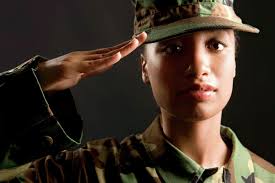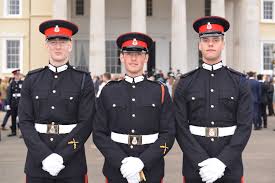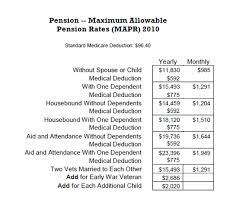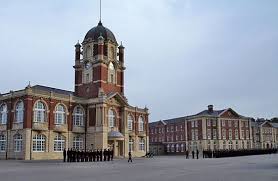The Importance of Senior Military Colleges
Senior Military Colleges (SMCs) play a crucial role in shaping future military leaders and preparing them for the challenges they may face in their careers. These institutions provide a unique blend of academic excellence and military training, setting them apart from traditional civilian colleges.
One key aspect of SMCs is their focus on leadership development. Cadets at these colleges undergo rigorous training programs that instill discipline, teamwork, and decision-making skills essential for success in the military. The structured environment of SMCs helps students cultivate the qualities needed to become effective leaders in the armed forces.
In addition to leadership training, SMCs offer a comprehensive education that combines academic coursework with military instruction. Cadets have the opportunity to pursue various majors while also participating in ROTC programs or other military training activities. This dual emphasis on academics and military preparation ensures that graduates are well-rounded individuals capable of excelling in diverse roles.
SMCs also provide a strong sense of camaraderie and community among cadets. The bonds formed during the intense training and shared experiences at these colleges create lifelong connections that extend beyond graduation. This network of support can be invaluable as cadets transition into their military careers and navigate the challenges they encounter along the way.
Overall, Senior Military Colleges serve as vital institutions that produce skilled, principled leaders who are ready to serve their country with honor and distinction. By combining academic rigor with military training, these colleges prepare cadets for the demands of military service while fostering personal growth and character development.
Exploring Senior Military Colleges: Key FAQs on Education, Training, and Opportunities
- What are Senior Military Colleges (SMCs) and how are they different from traditional colleges?
- What kind of leadership training do cadets receive at Senior Military Colleges?
- Can students pursue specific majors at Senior Military Colleges or are they limited to military-related fields?
- Do all Senior Military Colleges offer ROTC programs or other military training opportunities?
- How do Senior Military Colleges prepare cadets for future careers in the military?
- What is the admissions process like for Senior Military Colleges?
- Are there financial aid options available for students attending Senior Military Colleges?
- Do graduates of Senior Military Colleges have a higher likelihood of success in the military compared to graduates from traditional colleges?
- What kind of support systems are in place for cadets at Senior Military Colleges?
What are Senior Military Colleges (SMCs) and how are they different from traditional colleges?
Senior Military Colleges (SMCs) are specialized institutions that provide a unique educational experience combining academic learning with military training. Unlike traditional colleges, SMCs offer a structured environment that emphasizes leadership development, discipline, and teamwork. Cadets at SMCs undergo rigorous military training programs alongside their academic coursework, preparing them for future roles in the armed forces. The distinctive feature of SMCs lies in their dual focus on academic excellence and military preparation, creating well-rounded individuals equipped with the skills and qualities needed to succeed in military careers.
What kind of leadership training do cadets receive at Senior Military Colleges?
Cadets at Senior Military Colleges undergo comprehensive leadership training that is designed to cultivate essential skills for military leadership roles. This training includes a combination of classroom instruction, hands-on exercises, and practical experiences that focus on areas such as decision-making, communication, teamwork, and ethical decision-making. Cadets participate in leadership labs, field training exercises, and mentorship programs to develop their abilities to lead effectively in high-pressure situations. The structured environment of Senior Military Colleges provides cadets with opportunities to practice and refine their leadership skills under the guidance of experienced military personnel, preparing them to become confident and capable leaders in the armed forces.
Can students pursue specific majors at Senior Military Colleges or are they limited to military-related fields?
At Senior Military Colleges, students have the opportunity to pursue a wide range of majors beyond just military-related fields. While these institutions emphasize leadership development and military training, they also offer diverse academic programs in areas such as engineering, business, humanities, and sciences. Cadets can choose majors that align with their interests and career goals, allowing them to receive a comprehensive education while preparing for military service. This flexibility in academic offerings at Senior Military Colleges ensures that students have the opportunity to explore various fields of study and develop skills that are applicable both within and outside the military context.
Do all Senior Military Colleges offer ROTC programs or other military training opportunities?
Not all Senior Military Colleges offer ROTC programs or other military training opportunities. While many SMCs do provide these programs as part of their curriculum, the specific offerings can vary depending on the institution. Some SMCs may have a strong focus on military training and require cadets to participate in ROTC programs, while others may offer a more flexible approach that allows cadets to choose their level of involvement in military activities. It is important for prospective students to research each SMC individually to determine the extent of military training opportunities available and find a program that aligns with their goals and interests.
How do Senior Military Colleges prepare cadets for future careers in the military?
Senior Military Colleges prepare cadets for future careers in the military through a comprehensive approach that combines academic excellence with rigorous military training. Cadets undergo specialized leadership development programs that focus on instilling discipline, teamwork, and decision-making skills essential for success in the armed forces. Additionally, cadets have the opportunity to participate in ROTC programs and other military training activities that provide hands-on experience in military operations. The structured environment of Senior Military Colleges fosters a strong sense of camaraderie and community among cadets, preparing them not only academically but also emotionally and mentally for the challenges they may face in their military careers.
What is the admissions process like for Senior Military Colleges?
The admissions process for Senior Military Colleges is typically rigorous and comprehensive. Prospective cadets are required to meet specific academic, physical, and character standards in order to be considered for admission. This process often includes submitting standardized test scores, academic transcripts, letters of recommendation, and completing a thorough application that may involve interviews and essays. Additionally, candidates may need to pass a physical fitness assessment and undergo medical examinations to ensure they meet the physical requirements for military training. Admissions committees carefully review each application to select candidates who demonstrate the potential to succeed academically and excel in a military environment.
Are there financial aid options available for students attending Senior Military Colleges?
Students attending Senior Military Colleges have access to various financial aid options to help offset the costs of their education. These institutions typically offer scholarships, grants, and other forms of financial assistance to eligible students. Additionally, students may qualify for federal financial aid programs, such as grants, loans, and work-study opportunities. Many Senior Military Colleges also participate in ROTC programs that provide financial support in exchange for military service commitments. With a range of financial aid options available, students attending Senior Military Colleges can pursue their education and military training with reduced financial burden.
Do graduates of Senior Military Colleges have a higher likelihood of success in the military compared to graduates from traditional colleges?
One frequently asked question regarding Senior Military Colleges is whether graduates from these institutions have a higher likelihood of success in the military compared to graduates from traditional colleges. While success in the military can depend on various factors, graduates of Senior Military Colleges often possess a unique advantage due to their specialized training in leadership, discipline, and military tactics. The comprehensive education and hands-on experience provided by SMCs equip graduates with the skills and mindset necessary to excel in military roles. Additionally, the strong sense of camaraderie and commitment to service fostered at SMCs can contribute to a higher level of dedication among graduates, further enhancing their potential for success in the military.
What kind of support systems are in place for cadets at Senior Military Colleges?
At Senior Military Colleges, cadets have access to a robust support system designed to help them succeed academically, physically, and mentally. These institutions offer mentorship programs, counseling services, academic tutoring, and health resources to support cadets throughout their training. Additionally, cadets benefit from a strong sense of camaraderie among their peers and faculty members, creating a supportive community that fosters personal growth and resilience. The structured environment of Senior Military Colleges ensures that cadets have the necessary tools and guidance to overcome challenges and thrive in their academic and military pursuits.




